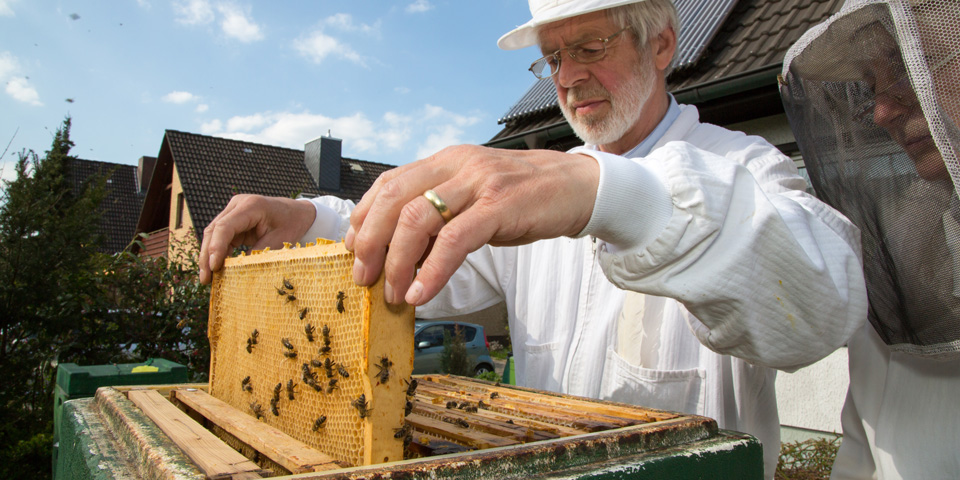
Beekeepers on collision course with GMO cultivation opt-out law
German beekeepers have called for a nationwide ban on cultivating GM plants, reports the German NGO keine-gentechnik.de.
The call by the German Beekeepers Association (DIB), which represents almost 100,000 beekeepers, comes after Europe adopted controversial legislation enabling member states to opt-out of the cultivation of GMOs that have been approved at the EU level.
Under the law, a member state can ban a GMO in part or all of its territory. But the law has come under heavy criticism for failing to provide a solid basis for such bans.
The beekeepers are urging Agriculture Minister Christian Schmidt (CSU) to implement a Germany-wide ban on cultivation. The Minister pleads, however, for letting each state decide individually.
The beekeepers counter that a piecemeal approach will not work. Bees fly up to eight kilometres in search of food, the DIB said, so a juxtaposition of GM crop cultivation zones and GMO-free zones within Germany would be "environmentally and agriculturally unacceptable".
“Bees know no borders," the DIB added.
The beekeepers’ demand for a nationwide ban could bring them into direct conflict with the new opt-out law, as experts warn that such bans may not be legally solid.
National GMO cultivation bans will be tough to uphold
At a conference on the new European legislation hosted by the Hungarian Ministry of Agriculture in Budapest, Hungary, in April 2015, Dr H.-Christoph von Heydebrand of the German Federal Ministry of Food and Agriculture warned that a nationwide ban on GMO cultivation would be much harder to justify under the new law than a regional or local ban.
A lawyer from the EU Council, Matthew Moore, speaking at the same conference in a personal capacity, agreed that it would be far easier under the law to defend national measures that “do not extend to the whole territory”.
Mr Moore gave an example of the type of challenge that would-be opting-out countries will be faced with. If they argue that GMOs threaten small-scale and agroecological farmers in their nation, they could be asked: “Is the entirety of your agricultural sector really composed of small farmers whose domination by a large agro-industrial company and its single pesticide motivated you to act?”
Mr Moore explained that the principle of proportionality is written into the new law, as well as being a general principle of EU law.
This means that the ECJ will be more inclined to accept GMO cultivation opt-outs “in relation to a defined region than in relation to the entirety of the territory of a country the size of Hungary”. Any measure taken by an opting-out country to ban or restrict the cultivation of GMOs must not go beyond what is necessary to achieve the stated aim.
Mr Moore made clear that if opt-outs were challenged, for example, by the GMO industry, the case would end up in the European Court of Justice. And the ECJ has a presumption in favour of the EU single market.
In simple terms, that means the ECJ could take a lot of convincing to allow a country or even a region to opt out of cultivating a GMO that the European Food Safety Authority (EFSA) asserts is safe. Such an opt-out, if allowed to stand, could create divisions in the European single market and might bring the member state into conflict with the ECJ.
The current situation in Germany, with beekeepers ranged against government officials and pro-GMO farmers, also suggests that the new opt-out law will create internal divisions within a country.
The GMO industry may go down in history as having broken apart the European Union and set one sector of the food and agriculture industry against another.










